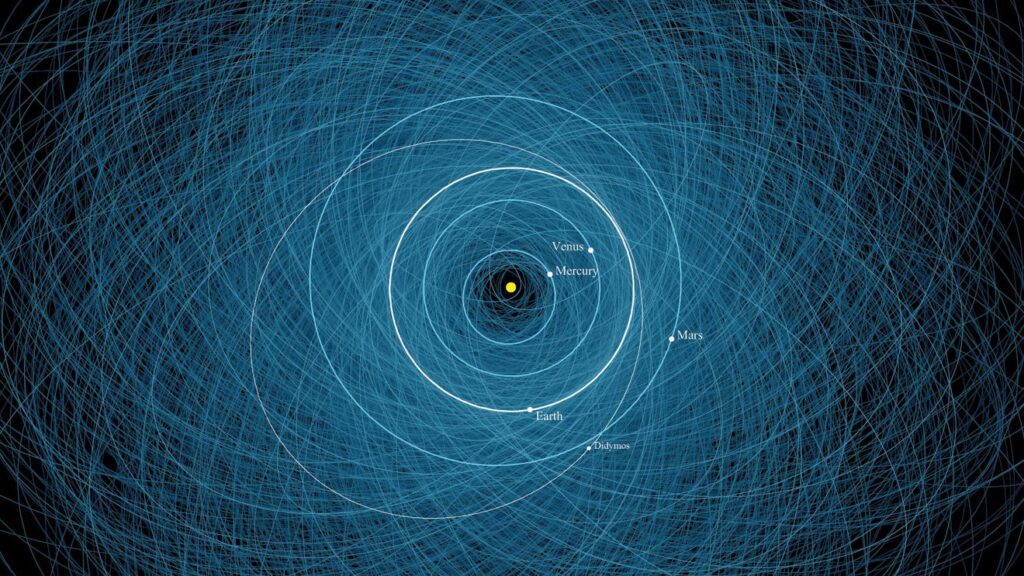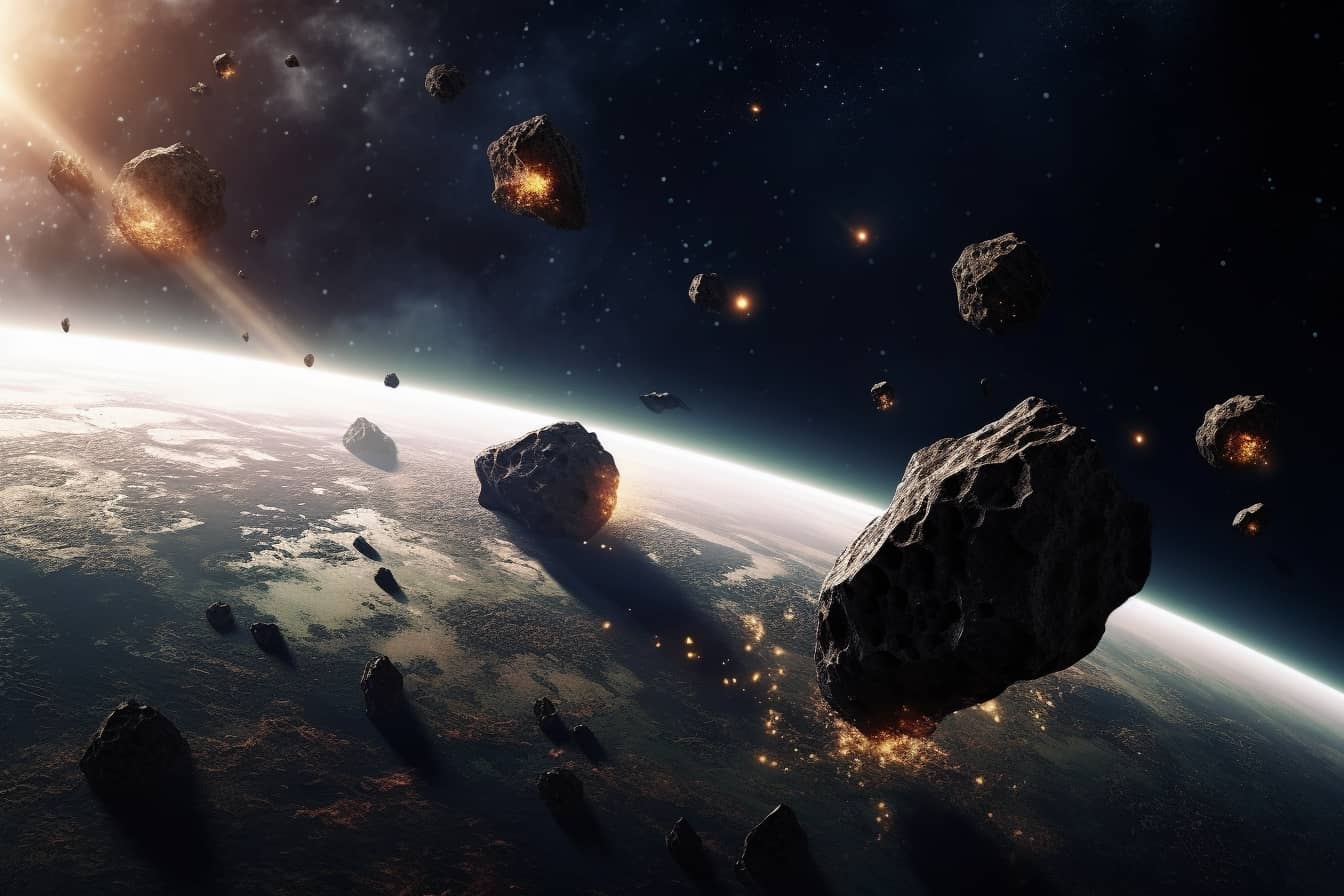The delightful planet that hosts us, Earth is not just a blue dot sitting quietly in the universe: like all other celestial bodies, it is a giant hole in an intergalactic golf course: the balls are called asteroids.
It has already happened to be caught in full, in fact. A game that has been going on for billions of years, and it won't stop right now, just because we humans are here. Sure, so far we've been fine, but luck shouldn't be challenged for long.
Excuse me, do you have a map of the asteroids?
There are several organizations scattered throughout the world that monitor the sky with attentive eyes. They create maps and catalogs of all near-Earth objects (the so-called NEO, Near Earth Objects) potentially dangerous: the bigger ones are the more dangerous, but also rarer.
We have fairly reliable maps of these "killer" asteroids (so to speak, larger than a kilometer): we should be fine for a few years. Even more than a few years.
A Millennium of Orbits

To better understand the risk we run with asteroids, a group of NASA astronomers has decided to predict the orbits of these NEOs for the next thousand years. Give them calculations which I link here, I'm telling you this by begging, it seems that there is no significant risk for the next century.
And beyond? It is not easy to get very far ahead with predictions in these cases. Details matter, and small changes can have big effects over a larger period of time. And then there are two scoundrels to keep an eye on.
Uninvited guests
At the end of their research, astronomers identified 28 asteroids that have a "non-zero" probability of having a "close encounter" with our planet, that is, of passing at a distance lower than that which separates the Earth from the Moon.
None of these appear to pose a real threat in the next thousand years, save for two asteroids.
The NEO number 7482 it has been rated as particularly dangerous: it will spend a lot of time near Earth during the next thousand years. Another asteroid, the 143651, has such a chaotic orbit that it is practically impossible to predict its future position beyond a few decades: let's keep an eye on this crazy person.
Asteroids, keep awake
The future of life on Earth will most likely depend on how we handle potential threats from outer space.
Science and technology will be our best allies in this effort: by investing in research, impact simulations and systems for divert the course of asteroids we should get away with.
Provided we manage not to go extinct on our own between wars, pandemics and pollution.


